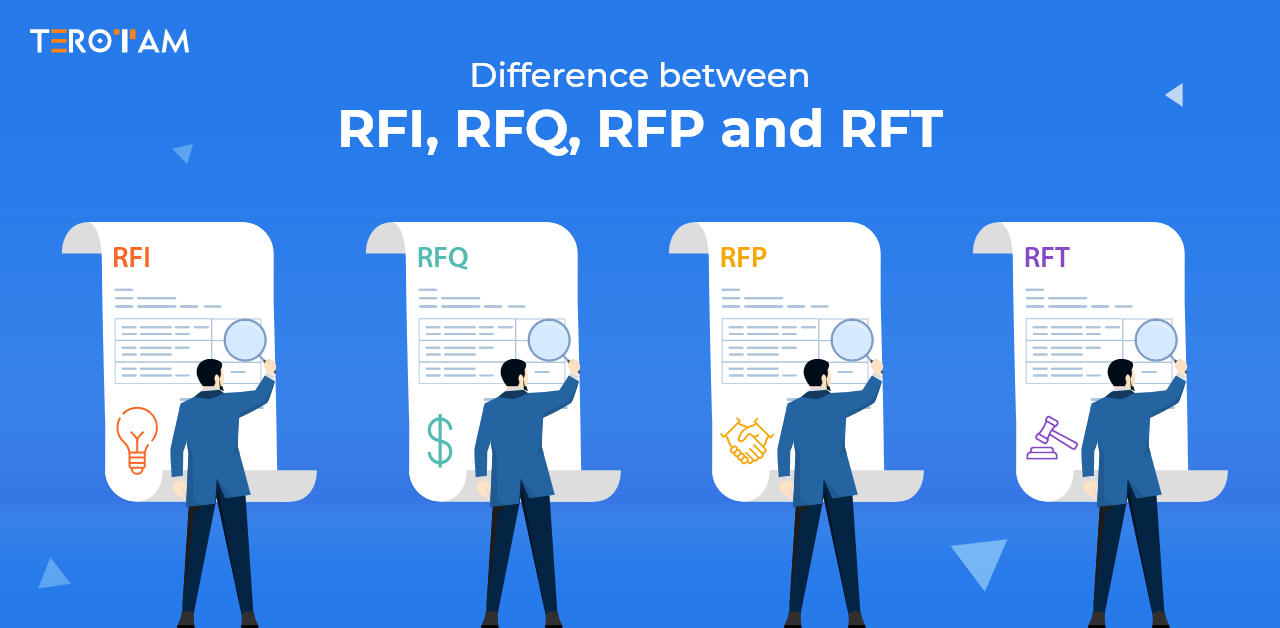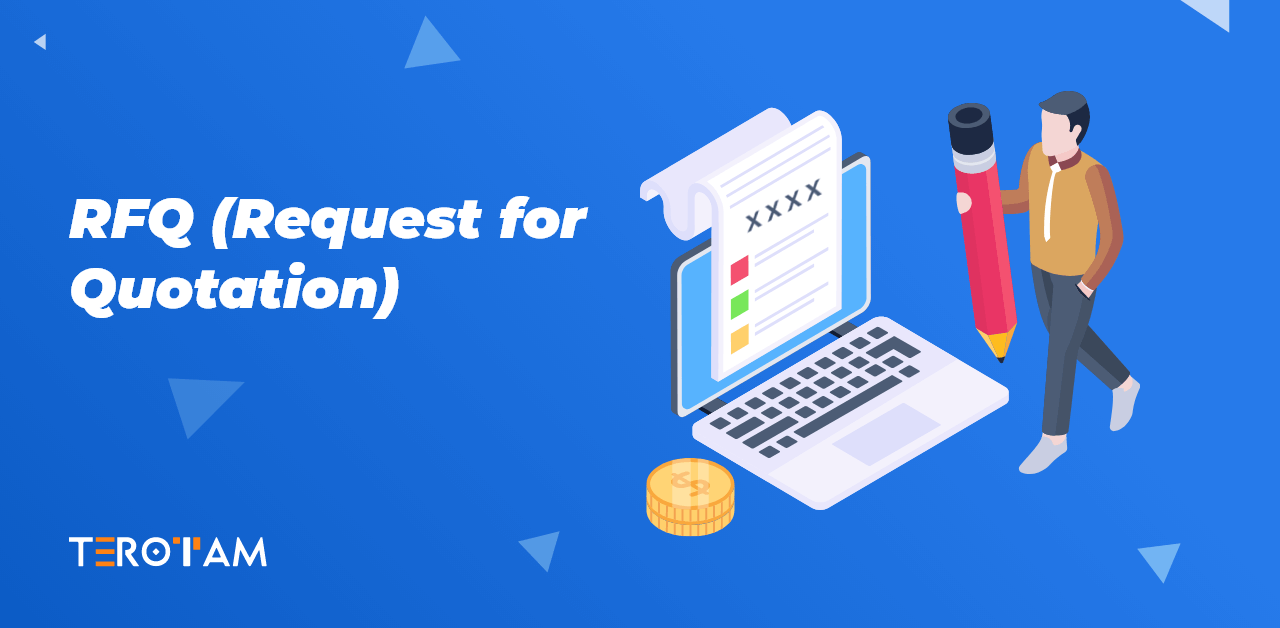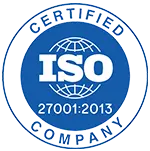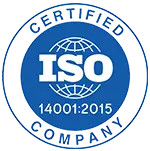In the world of procurement and business processes, acronyms like RFI, RFQ, RFP, and RFT can be perplexing to those not familiar with them. These four terms represent essential stages in the procurement cycle, and understanding the differences between them is crucial for businesses looking to streamline their purchasing processes, find the best suppliers, and make informed decisions.
In this article, we’ll break down the distinctions between RFI, RFQ, RFP, and RFT.
RFI stands for Request for Information
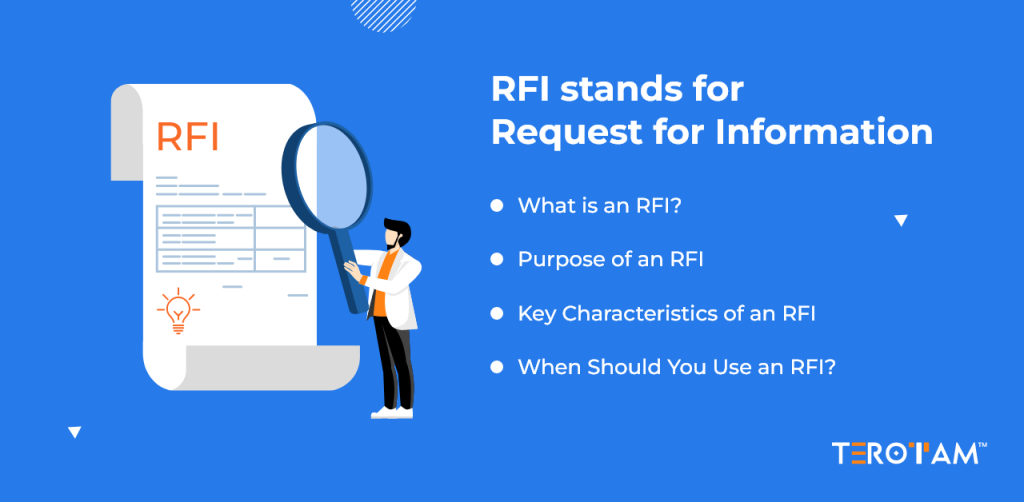
What is an RFI?
RFI is a document or process used in procurement to request information from potential suppliers or vendors. It is typically the initial stage of the procurement cycle and is designed to collect basic information about suppliers’ capabilities, qualifications, and their interest in a particular project or requirement. RFIs are usually non-binding and serve as a means of assessing potential suppliers without creating a commitment to purchase.
Purpose of an RFI
An RFI is often the first step in the procurement process. It’s a tool used by organizations to gather information and establish a preliminary understanding of potential suppliers and their capabilities.
Key Characteristics of an RFI
- Non-Binding Nature: RFIs are typically non-binding, meaning that they don’t lead to a commitment to purchase. They serve to collect data without obligating the requester to proceed with a purchase.
- Exploratory Purpose: RFIs are used to gain insights into a supplier’s qualifications, capabilities, and suitability for a potential project or requirement.
- Use of Open-Ended Questions: RFIs often include open-ended questions and may request supporting documents or references to evaluate a supplier’s credibility and expertise.
When Should You Use an RFI?
RFIs are useful when you’re exploring the market or looking for new suppliers. They help you assess the vendor landscape and identify potential partners for future procurement activities.
RFQ stands for Request for Quotation

What is an RFQ?
RFQ (Request For Quotation) is a formal request made by a buyer to potential suppliers or vendors to submit price quotations for specific goods or services. RFQs are typically used when the buyer has well-defined product or service requirements and is primarily focused on obtaining competitive pricing information. RFQs are often binding, indicating a genuine intent to purchase based on the provided quotations.
Purpose of an RFQ
An RFQ is a formal request for price quotations from suppliers, detailing the specific goods or services you need.
Key Characteristics of an RFQ
- Emphasis on Pricing and Quantifiable Details: RFQs focus primarily on pricing and measurable specifications. They are used when the product or service requirements are clearly defined and straightforward.
- Binding Nature of Quotations: Issuing an RFQ usually signifies a firm intent to purchase, and the received quotations are considered binding commitments from suppliers.
- Use of Standardized Response Formats: RFQs typically follow a standardized format or template, making it easier for suppliers to provide clear and consistent responses.
When Should You Use an RFQ?
RFQs are appropriate when you have a clear understanding of your needs and are looking to compare prices from different suppliers. This approach is common for commodities and standardized products.
RFP stands for Request for Proposal
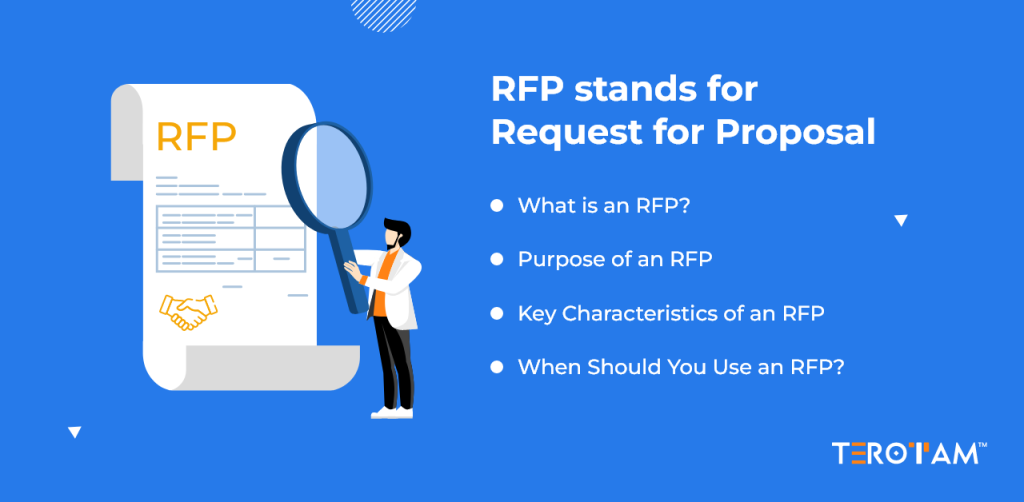
What is an RFP?
RFP is a comprehensive document or process used in procurement to solicit detailed proposals from potential suppliers or vendors. Unlike an RFQ, an RFP goes beyond pricing and includes various project or service-related aspects, such as technical specifications, project methodologies, quality standards, and more. RFPs are commonly used for complex projects or procurements where factors beyond pricing are essential. They allow for a holistic assessment of suppliers’ capabilities and offerings.
Purpose of an RFP
An RFP is a more comprehensive document that seeks detailed proposals from suppliers, not just pricing information.
Key Characteristics of an RFP
- Detailed and Comprehensive Proposals: RFPs require suppliers to submit detailed proposals, which may include technical specifications, delivery timelines, project methodologies, and more.
- Suitable for Complex Procurements: RFPs are used for complex projects or purchases where factors beyond pricing, such as quality, innovation, and expertise, are essential.
- Multi-Factor Evaluation Criteria: RFPs include evaluation criteria that go beyond price, allowing for a more holistic assessment of suppliers.
When Should You Use an RFP?
RFPs are suitable for projects or procurements where you need to evaluate not only the cost but also the capabilities, experience, and approach of potential suppliers. This is common in services, technology, and other complex acquisitions.
RFT stands for Request for Tender
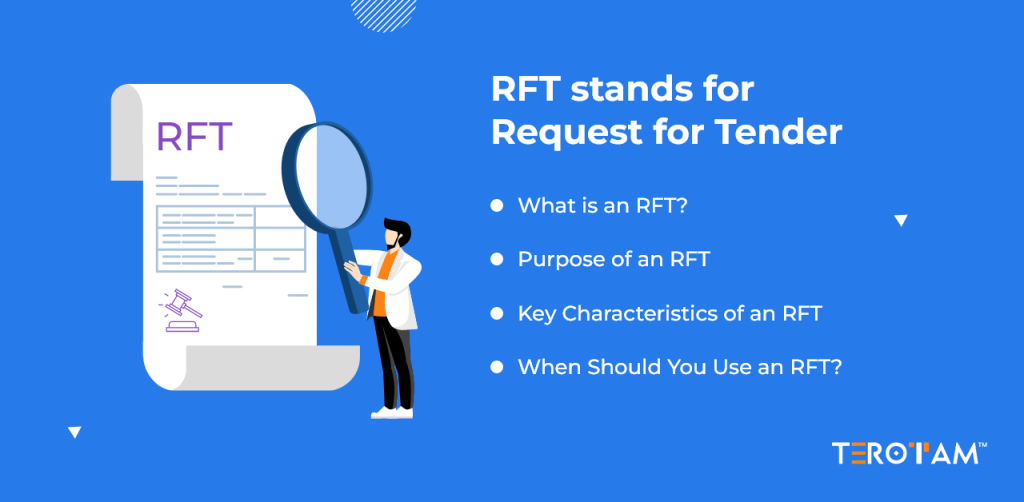
What is an RFT?
RFT is similar to an RFQ but is typically used in construction and civil engineering industries. It is a formal invitation to potential suppliers to submit competitive bids for a project. RFTs often require highly detailed project specifications, including design, materials, and other project-related information. The lowest compliant bid is typically awarded the contract in a competitive bidding process associated with RFTs.
Purpose of an RFT
RFT is similar to an RFQ, but it’s often used in the construction and civil engineering industries. It’s a formal invitation to potential suppliers to submit bids for a project.
Key Characteristics of an RFT
- Competitive Bidding Process: RFTs are typically used when multiple suppliers are invited to submit competitive bids for a project, and the lowest compliant bid is usually awarded the contract.
- Detailed Specifications: RFTs include highly detailed project specifications, including design, materials, and other project-related information.
- Mandatory Strict Compliance: Suppliers must adhere strictly to the RFT’s specifications to be considered.
When Should You Use an RFT?
RFTs are prevalent in the construction and civil engineering sectors, where projects often require precise specifications and competitive bidding.
Wrapping Up: Mastering the Procurement Process
These four procurement documents serve distinct functions within the purchasing process. An RFI kicks off the exploration phase, RFQs are tailored for pricing well-defined needs, RFPs delve into comprehensive proposals, and RFTs are specialized for competitive bidding. Understanding the appropriate use of each of these documents is pivotal for efficient procurement and the successful selection of suppliers.
Do you want to understand more or are you looking for deeper insights into the eProcurement system? Connect with TeroTAM’s e-procurement experts now or write to us at contact@terotam.com.


